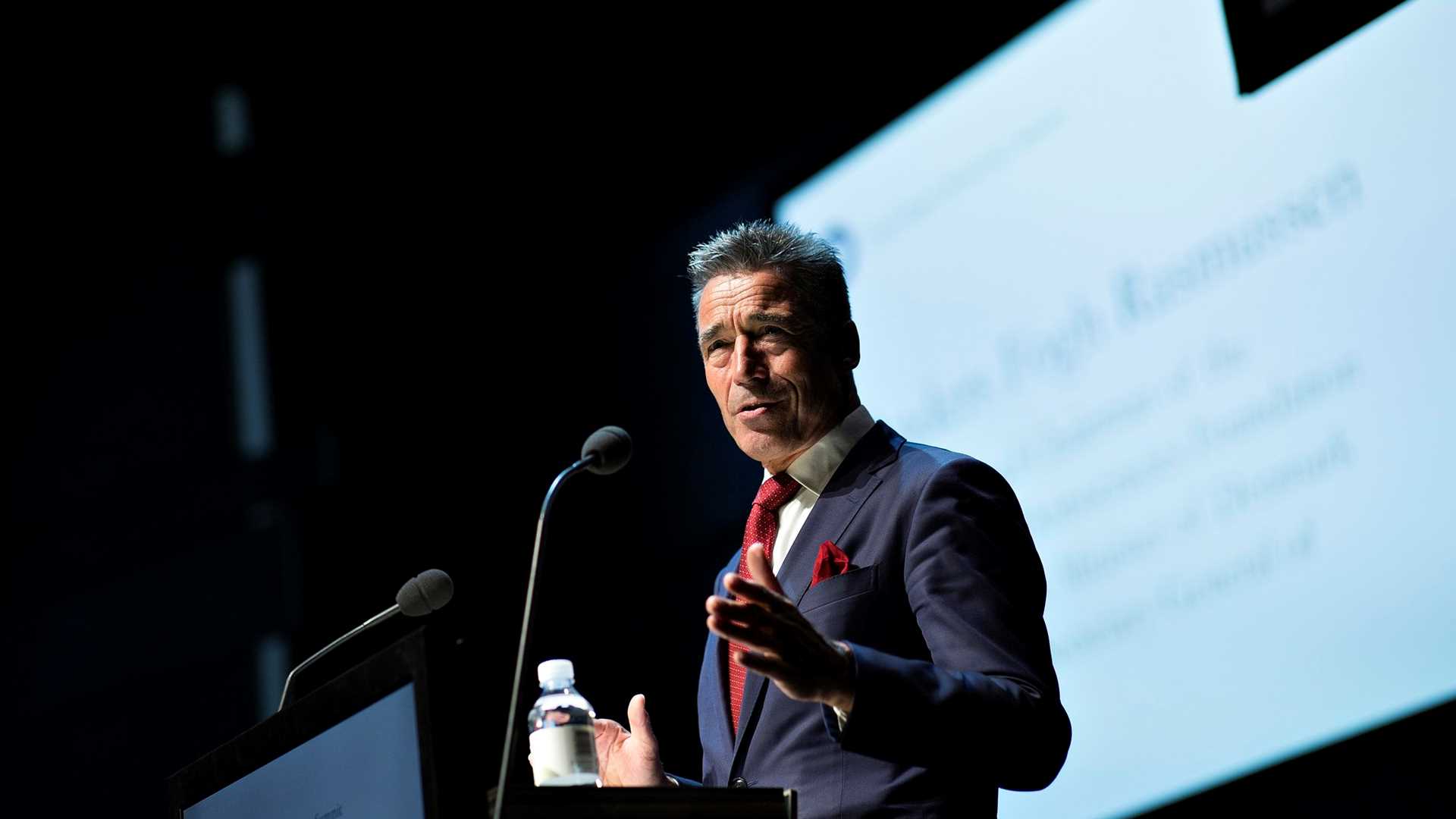From expanding maritime commerce in the Middle Ages to building today's strong democracies, the nations surrounding the Baltic Sea have shaped world culture and politics for centuries.
Over the course of 16 days, our Circumnavigating the Baltic Sea expedition will introduce guests to the storied waterway that has linked empires and destinies. Aboard the National Geographic Explorer, we’ll sail the same routes as Viking warriors and medieval traders as we dive into the region's riches, including fortresses standing watch over scenic harbors, modern museums celebrating influential arts and design, and national parks that protect priceless maritime heritage.
This year we are honored to welcome a special guest speaker on the May 9 and May 23 departures from Copenhagen, Denmark. Former NATO General Secretary and former Prime Minister of Denmark Anders Fogh Rasmussen will accompany each voyage for three days, offering guests deep insight into the places and geopolitics they will encounter on the journey.
Rasmussen has served at the center of Baltic, European, and global politics for three decades. As Prime Minister of Denmark, he held the European Union’s rotating presidency when negotiating the admission of 10 new countries, including Poland, Latvia, and Estonia. During his time at NATO from 2009 to 2014, he oversaw six operations on three continents, including Afghanistan, Kosovo, and Somalia. Currently, Rasmussen is advising Ukraine's President Volodymyr Zelenskyy on future security guarantees.
“The close relationships among the Baltic nations, dating back to the formation of the powerful Hanseatic League in the 14th century, are still evident in the modern age,” says Laura Macfarlane, the expedition development manager for this voyage.
"People still identify very strongly with their roots, and the cultures are tied very much to nature and being around water. I love how it comes out in their priorities and how they live," says Macfarlane. "This expedition has a nice balance of the historical routes, allowing guests to see how these places have developed, but they also get to meet the people who are living it day by day."
Guests can learn about Poland's fight for freedom and democracy at the European Solidarity Centre in Gdańsk, marvel at the stunning Art Nouveau architecture in central Riga, Latvia, and walk the cobbled streets of the medieval old town in Tallinn, Estonia. The National Geographic Explorer will dock in the heart of Stockholm's Gamle Stan and in downtown Helsinki, allowing guests to leave the ship and discover these world capitals on their own.
Days spent exploring dynamic cities are paired with off-the-beaten-track experiences in the region’s lesser-known destinations, like Zodiac voyages to Finland's charming Åland Islands or a hike across the rugged landscape of Sweden's Öland Island, the site of numerous Stone Age ruins. Guests return to Copenhagen with memories of their once-in-a-lifetime adventure.
One highlight of the expedition is a visit to a Finnish estate owned by the same family for 13 generations; guests will see how they run a farm, operate a brewery, and adapt their traditional ways to fit modern times—before sitting down to a delicious home-cooked meal in the family's villa.
These cultural values have transformed the Baltic into a democratic bulwark. "There probably isn't a hotter region, geopolitically, than the Baltics because of the different moving parts—NATO, the European Union, the global economy, and the war in Ukraine," Macfarlane says.
"Our guests are curious people; they will have questions, and instead of avoiding these topics, we want to lean into them. Anders Fogh Rasmussen is the person to help us do that. He has actually lived it."
Rasmussen will add rich context to the fascinating places and complex geopolitics guests will encounter on this voyage.
"The fact is that no other system in the world has ever produced so many opportunities for people as freedom and democracy," Rasmussen has said. "So we have a lot to be proud of."
Rasmussen's deep knowledge of the Baltic's importance to global security and democracy—as well as its extraordinary cultures and history—present an unparalleled opportunity for guests to learn about the region’s close relationships with Europe, the United States, and the world.




